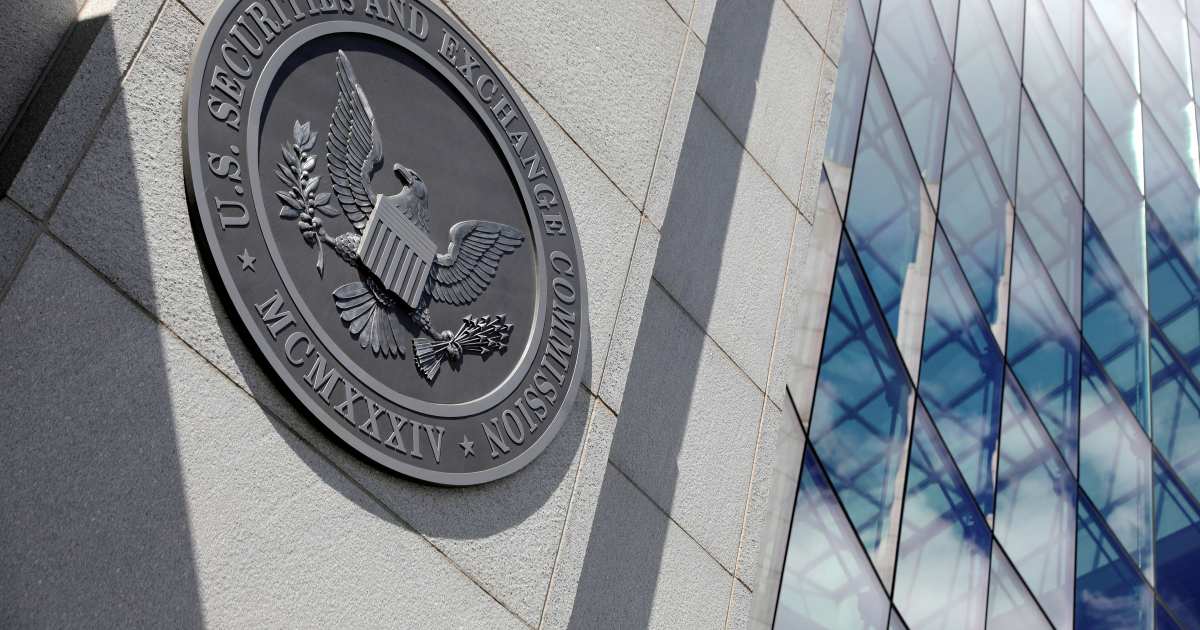SEC Chairman With Important Comments on Regulation, Crypto, and Trading
03.07.2025 8:30 2 min. read Kosta Gushterov
U.S. Securities and Exchange Commission (SEC) Chairman Paul Atkins has emphasized the agency’s continued focus on investor protection, addressing insider trading, market manipulation, and the evolving landscape of cryptocurrency regulation.
Speaking on a recent program, Atkins acknowledged that while high-profile insider trading cases have declined in visibility, the SEC remains committed to monitoring such activities. “Fraud is fraud,” Atkins stated, underscoring that the agency’s core mission remains the same: protecting investors, promoting capital formation, and maintaining fair and efficient markets.
Growing Attention on Cryptocurrency Oversight
Atkins pointed to the fast-growing cryptocurrency sector as an area of active regulatory engagement. He reaffirmed that the SEC is involved in ensuring the digital asset market operates with integrity, noting that poor regulation remains a concern in this space. He cited past incidents of market manipulation, such as the short-lived “Sorkin Coin,” as examples of behavior reminiscent of the unchecked speculative activity seen in the 1920s.
Investor groups coordinating through private chat groups or social media platforms to influence asset prices are being closely tracked, according to Atkins. He warned that these trends blur traditional market boundaries and require heightened vigilance.
Digital Communication and Insider Information Risks
The SEC chairman also discussed how new channels of communication—such as social media, livestreams, and podcasts—have transformed the way companies engage with investors. While these platforms offer broader reach, Atkins highlighted that they also raise concerns about fair information access and the potential spread of insider knowledge.
Congressional Stock Trading Under Review
When asked about congressional stock trading and the effectiveness of the “STOCK Act,” Atkins acknowledged the act’s limited impact. He confirmed that the SEC is carefully examining thousands of disclosures from public officials but declined to comment on any specific individuals or transactions.
-
1
Vietnam Charts a Clear Course for Digital Assets With New 2026 Law
16.06.2025 18:00 1 min. read -
2
GENIUS Act Clears Senate, Setting Stage for First U.S. Crypto Law
18.06.2025 12:00 1 min. read -
3
Coinbase and Set Gemini to Expand in EU Under MiCA Rules
17.06.2025 13:00 2 min. read -
4
Wall Street Prepares for Stablecoin Integration as Regulatory Path Clears
19.06.2025 11:00 1 min. read -
5
U.S. Senate Moves Closer to Passing Landmark Stablecoin Legislation
17.06.2025 10:00 1 min. read
Arizona Governor Vetoes Bill, Related to State Crypto Reserve Fund: Here Is Why
Arizona Governor Katie Hobbs has officially vetoed House Bill 2324, a legislative proposal that aimed to create a state-managed reserve fund for holding seized cryptocurrency assets.
SEC Explores New Fast-Track Process for Token-Based ETFs
The U.S. Securities and Exchange Commission (SEC) is in the early stages of developing a standardized listing framework for token-based exchange-traded funds (ETFs), according to a July 1 report by journalist Eleanor Terrett.
SEC Approves Grayscale ETF Tracking Top Five Cryptocurrencies
The U.S. Securities and Exchange Commission (SEC) has officially approved the conversion of the Grayscale Digital Large Cap Fund into an exchange-traded fund (ETF), finalizing its transition from an over-the-counter product into a fully regulated ETF structure.
U.S. Supreme Court Backs IRS Access to Crypto Exchange Data
In a major development for cryptocurrency regulation and user privacy, the U.S. Supreme Court has declined to hear a challenge to the IRS’s authority to collect broad customer data from crypto exchanges.
-
1
Vietnam Charts a Clear Course for Digital Assets With New 2026 Law
16.06.2025 18:00 1 min. read -
2
GENIUS Act Clears Senate, Setting Stage for First U.S. Crypto Law
18.06.2025 12:00 1 min. read -
3
Coinbase and Set Gemini to Expand in EU Under MiCA Rules
17.06.2025 13:00 2 min. read -
4
Wall Street Prepares for Stablecoin Integration as Regulatory Path Clears
19.06.2025 11:00 1 min. read -
5
U.S. Senate Moves Closer to Passing Landmark Stablecoin Legislation
17.06.2025 10:00 1 min. read


